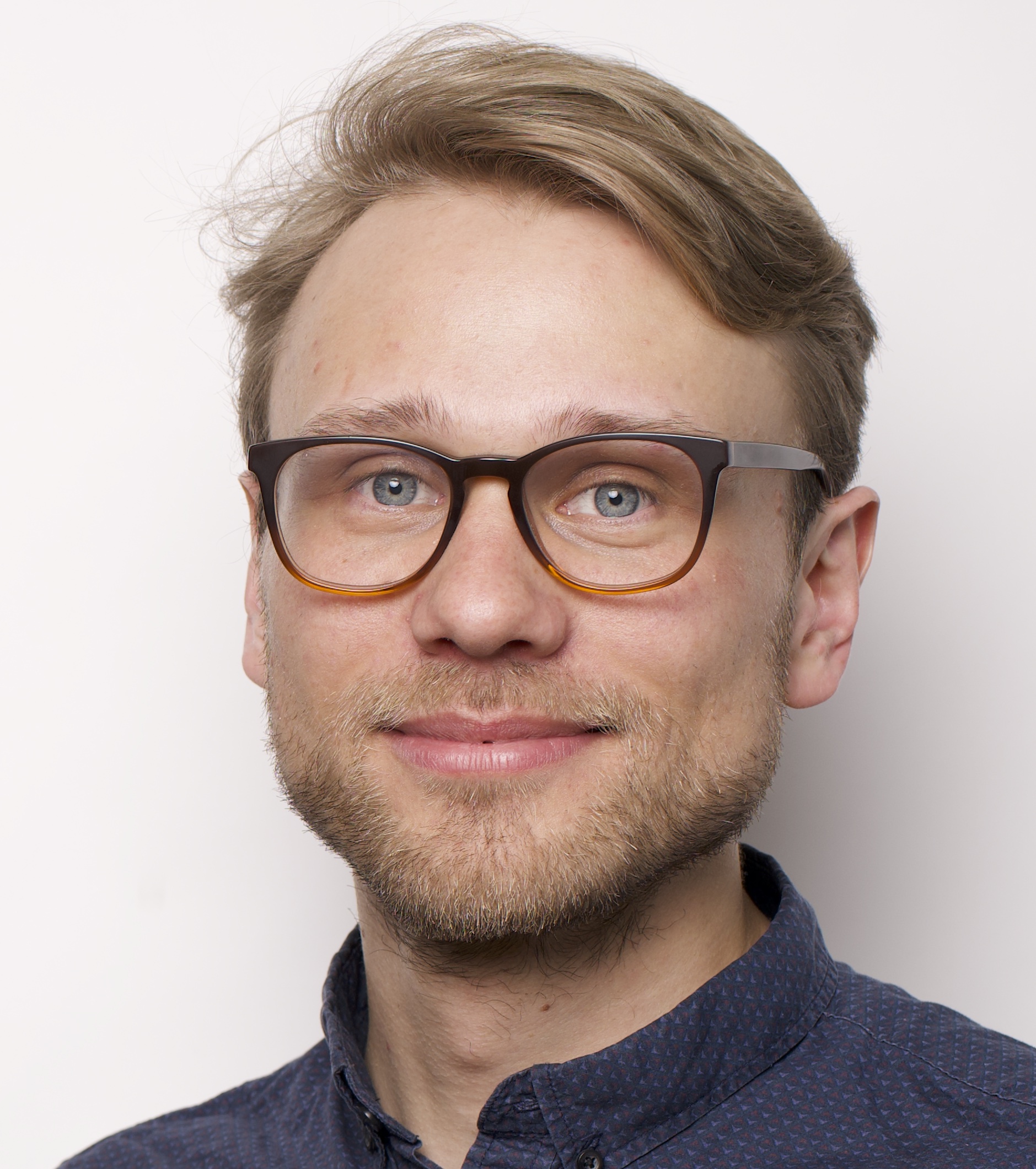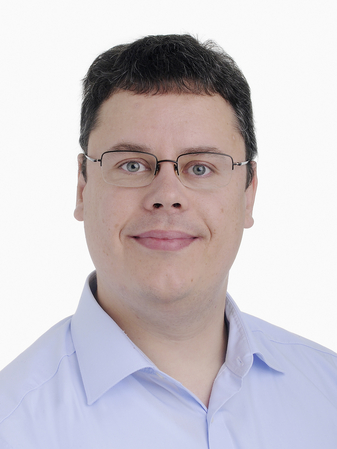Project Description
Thermal Issues
22nd – 23rd March 2022, ETH Zürich, Switzerland
Special Interest Group Meeting: Thermal Issues
ETH Zürich, CH
22nd – 23rd March 2022
COVID-19: Entry requirements to Switzerland
On account of the COVID-19 pandemic, certain requirements are in place before entering Switzerland. Please click here for further information.
Thermal effects are regarded as a major contributor to errors on precision equipment, instruments and systems within precision engineering.
Measurement is becoming even more important as workpiece tolerances decrease, as thermal effects not only use a larger part of the tolerances, but also influences repeatability, long term stability and general issues such as “lifetime” and “process-quality” of machine tools and measuring equipment. In the work-place of today, these play an important role in high-throughput production equipment and many scientific instruments e.g. operating at cryo-genic and Ultra-high vacuum.
We were delighted to bring together leading expertise globally to an open forum for focused presentations and discussions on thermal issues. This includes manufacturing, temperature control in electric mobility (windmills), cryogenic vacuum and scientific instrumentation within large science projects.
We are seeking papers in the following categories:
1. Measurement of thermal influences in production equipment, process and product
- Understanding the machines thermal behaviour and the errors on the machined workpiece follows a deep understanding and evaluation of the thermal chain of causes and the error sources
- Equipment and methods for direct and indirect measurements
2. Modelling and model reduction techniques
- Modelling of temperature and deformation fields: lumped-mass, structural FE, CFD
- Reduction of multi-physics models, reducing complexity and size
- Thermal mode shapes (temperature and deformation): Eigen-modes, POD-modes, FRF-based modes
3. Compensation and correction of thermal effects (e.g. Artificial Intelligent algorithms and techniques)
- Reducing thermal errors of machines based on control theory
- Input data and sensor data processing, modelling techniques and actuator control
- Implementation in machine controls and manufacturing planning
4. Design principles for thermally robust production equipment (e.g. Machine Elements, Machine Structures)
- The enhancement of machine positioning based on high precision machine design principles. These aim to reduce either the generation of temperature gradients or the deformation sensitivity of the machine structure to them. (Characteristic examples of current research: Heat pipes, Phase-change materials, cooling systems, heat accumulators)
5. Test workpieces and assessment
- Methods for evaluating thermal errors of machines by manufactured testworkpieces, design of testworkpieces, manufacturing strategies and evaluation approaches
6. Thermo-energetic design
- Design, correction or compensation measures that satisfy the conflicting goals of reducing energy consumption and increasing accuracy and productivity in machining
7. Temperature Measurement & Control (inc. electric mobility)
- Accurate and fast temperature measurement in scientific and industrial environment
- Control algorithms, thermal actuation
- Thermal system identical measurements (model measurements)
- Challenges under cryogenic conditions
The local hosts and organising committee supporting euspen for this Special Interest Group meeting on Thermal Issues are :- Dr Gorka Aguirre, IDEKO, ES; Dr Otakar Horejš, Czech Technical University in Prague, CZ; Prof. Andrew Longstaff, University of Huddersfield, UK; Dr Josef Mayr, ETH Zürich, CH; Dr Theo A.M. Ruijl, MI-Partners B.V., NL
The Thermal Issues meeting chair is Dr Theo Ruijl from MI-Partners B.V.
This event is supported by our local host:
Key Dates
21st January 2022: Online abstract submission deadline
28th January 2022: Notification of presentation (oral/poster)
28th January 2022: Registration opens
Registration Fees
Fees and information about the Thermal Issues meeting.
euspen member and non-members fees are inclusive of the networking dinner.
- €195.00+VAT euspen Student members*
- €395.00+VAT euspen member
- €495.00+VAT Non-euspen members
- €45.00+VAT Networking Dinner (Only applicable for Student Members)
* Student members fee is not inclusive of the networking dinner.
All speakers and presenters must register for the conference using the appropriate delegate fee.
Registration
You should read the following rules and select Delegate Registration A or B dependent on which category you are in.
Select Delegate Registration Form A if ANY of the following applies:
- You are based in the UK or Europe
- You are a private individual based within the UK or Europe
- You are an organisation based within the UK or Europe
- You are representing a UK or European company that is VAT/IVA registered
Notes:
This form will apply Swiss VAT rate which is currently 7.7%. Switzerland is NOT part of the EU therefore reverse VAT rules do not apply.
Select Delegate Registration Form B if the following applies:
- You are representing a business outside of the UK and Europe
Notes:
This form will NOT apply any VAT.
Submit an abstract for Thermal Issues 2022
We are delighted to bring together leading expertise globally to an open forum for
focused presentations and discussions on thermal issues.
Announcement & Call for Abstracts
Come and join your international peers and maintain a leading edge on technology, customers, partners and suppliers. Access the greatest minds in working within the field of thermal issues research and development. Share knowledge and information and stimulate debates.
Themes :-
- Measurement of thermal influences in production equipment, process and product
- Modelling and model reduction techniques
- Compensation and correction of thermal effects (e.g. Artificial Intelligent algorithms and techniques)
- Design principles for thermally robust production equipment (e.g. Machine Elements, Machine Structures)
- Test workpieces and assessment
- Thermo-energetic design
- Temperature Measurement & Control (inc. electric mobility)
Submission of abstracts
Abstracts are expected to describe original work, previously unpublished and should indicate new and significant advances and their importance. For this meeting the number of pages per abstract is flexible between half a page and up to four A4 pages long. You should use the links above to submit your abstract.
Following review of all abstracts authors will be notified of their presentation mode (poster/oral). The final decision on acceptance of all papers is made by the Editor and Scientific Committee of the SIG meeting.
The invitation to submit an abstract does not constitute an offer to pay travel, accommodation or registration costs associated with the conference. Similarly, no speaker fee is paid to successful participants. All speakers must register for the conference and transfer registration fee. In specific cases the organising committee reserves the right to deviate from the standard procedure.
Keynotes

Dr. Josef Mayr
inspire AG/ ETH Zürich
Sustainability in production by thermal error compensation
The world of manufacturing technology is characterized by ever-increasing precision requirements and a constant fight to keep productivity rates high. Thermal errors of machine tools contradict these goals. To achieve high precision and productivity, thermal stability measures are taken that are very consume a lot to operate and build. A sustainable machine tool is characterized by intelligence that enables the user to achieve precision and productivity requirements while conserving resources. The key component for this goal is intelligence-based thermal error compensation.
Biography
Josef is group leader at the inspire AG, a strategic partner of ETH Zürich. His work can best be explained with “sustainable production – production for sustainability”. He is responsible for a group working on the topic of thermal errors of production machines. His flied of research envelops the area of precision engineering, modelling and numerical control theory. Josef further is leading a group developing sustainable transportation systems and their production technologies. Josef investigates solutions for electric mobility and electric aviation. Josef has authored more than 50 publications and teaches in manufacturing at ETH Zurich.

Benjamin A. Bircher
Laboratory for Length, Nano- and Microtechnology, Federal Institute of Metrology METAS
Thermal challenges in dimensional metrology using X-ray computed tomography
The ISO 1 standard defines that all dimensional measurements must be referred to 20 °C, as thermal expansion would otherwise affect comparability. Therefore, eliminating heat sources inside coordinate measuring machines (CMMs) is key to stabilise the machine frame and sample temperature and achieve accurate dimensional measurements. In tactile and optical CMMs it is usually possible to reduce the residual heat dissipation inside the machine to a few Watts. In contrast, for X-ray computed tomography (XCT) CMMs this is intrinsically difficult due to the principle of X-ray generation. Industrial XCT systems have power dissipation that usually exceeds 100 W, with major contributions coming from the X-ray source and the large area X-ray detectors. We will discuss how we addressed these thermal challenges and the measures taken to achieve XCT measurements with sub-micrometre accuracy. In particular these measures include extensive temperature monitoring, temperature control using cooling circuits, controlling radiative heat transfer from X-ray source to sample, self-compensating compliant structures, numerical compensation (analytical and finite element models) and in situ metrology to measure thermal deformation of the machine frame.
Biography
Benjamin works as a scientist and R&D project leader at the Swiss Federal Institute of Metrology METAS. There, he is leading the x-ray computed tomography project, which includes several European and national research collaborations. He holds a PhD in experimental physics from the University of Basel, Switzerland. Among others, he worked in the fields of scanning probe microscopy at UC London, UK, sensing and microfluidics at University of Basel, Switzerland, and dimensional x-ray computed tomography at METAS.

Prof. Dr. Philip Schütz
Lucerne University of Applied Science (HSLU)
Non-destructive thermal process monitoring by X-ray computed tomography
X-ray computed tomography (XCT) enables the non-destructive measurement of virtual cross-sections through a sample. Deformations as well as changes in the material composition or density within the sample can be spatially resolved easily by XCT. The tracking of dynamic processes so far was only possible in synchrotron beamline experiments. However, recent advances in detectors and X-ray sources enabled modern laboratory X-ray CT system to track the evolution of thermal processes by sequences of fast CT measurements. In the presentation, a state-of-the-art of X-ray computed tomography applications for thermal process monitoring will be presented. Applications ranging from deformation measurements and geometry acquisition for the simulation of heat transfer fluid flow and heat conduction in packed beds to dynamic CT experiments tracking the melting and solidification of phase change materials will be discussed. In an outlook, current limitations and potentials will be discussed to stimulate novel ideas for the application of XCT in thermal process monitoring.
Biography
Philipp works as a professor/lecturer at Lucerne University of Applied Science (HSLU). There, he co-leads the research group “assessment of thermal energy storage” in the competence center for thermal energy storage. Together with his group, he investigates how thermal storage can support the Swiss energy system, how energy system data can support the energy turnaround and how X-ray computed tomography can help to track thermal processes. He holds a master in mathematical physics from ETH Zurich and a PhD in theoretical biophysics from university of Zurich. After graduation, he worked as a scientist at EMPA in the field of computed tomography, before joining HSLU as a lecturer.



